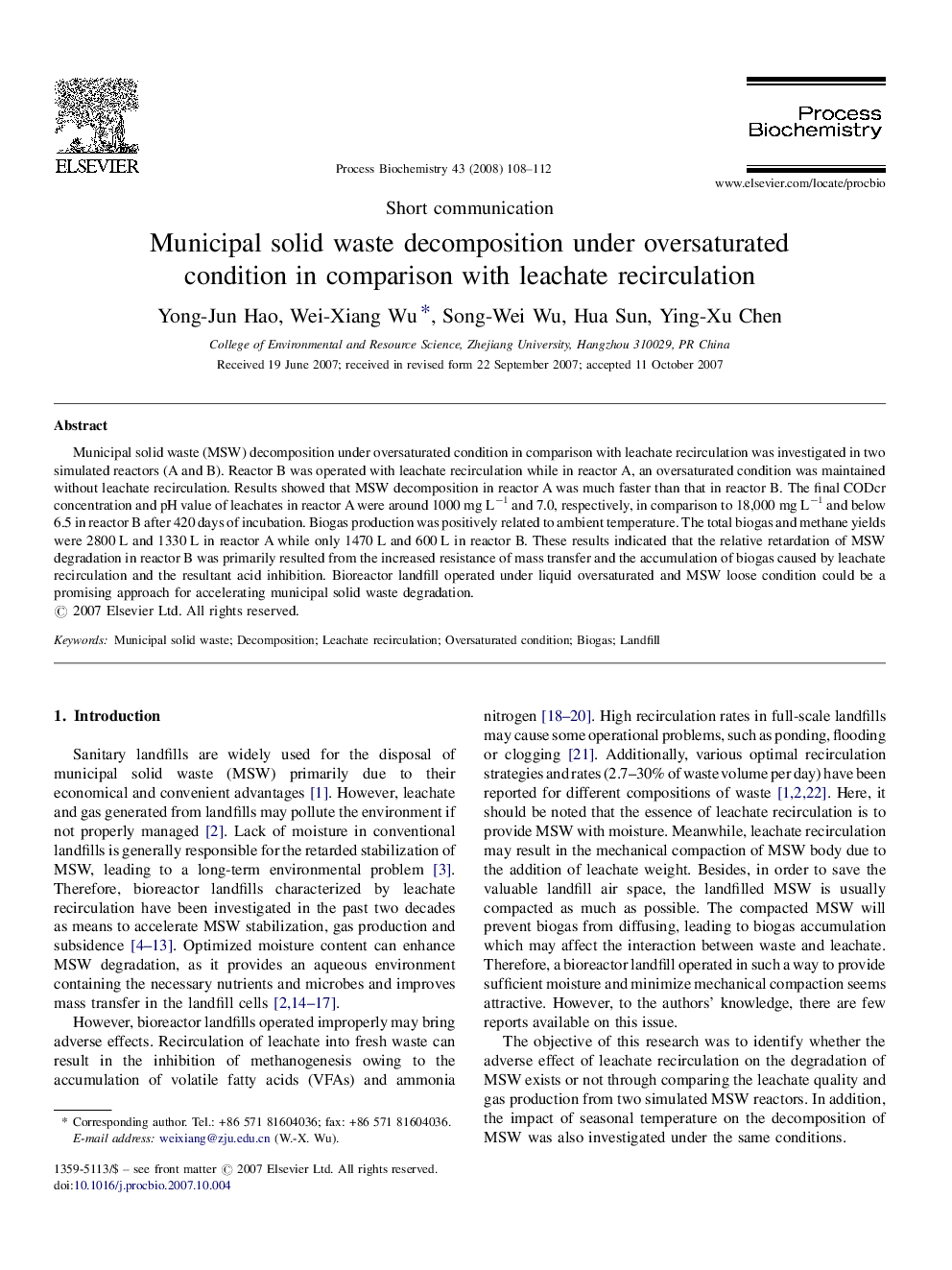| Article ID | Journal | Published Year | Pages | File Type |
|---|---|---|---|---|
| 35923 | Process Biochemistry | 2008 | 5 Pages |
Municipal solid waste (MSW) decomposition under oversaturated condition in comparison with leachate recirculation was investigated in two simulated reactors (A and B). Reactor B was operated with leachate recirculation while in reactor A, an oversaturated condition was maintained without leachate recirculation. Results showed that MSW decomposition in reactor A was much faster than that in reactor B. The final CODcr concentration and pH value of leachates in reactor A were around 1000 mg L−1 and 7.0, respectively, in comparison to 18,000 mg L−1 and below 6.5 in reactor B after 420 days of incubation. Biogas production was positively related to ambient temperature. The total biogas and methane yields were 2800 L and 1330 L in reactor A while only 1470 L and 600 L in reactor B. These results indicated that the relative retardation of MSW degradation in reactor B was primarily resulted from the increased resistance of mass transfer and the accumulation of biogas caused by leachate recirculation and the resultant acid inhibition. Bioreactor landfill operated under liquid oversaturated and MSW loose condition could be a promising approach for accelerating municipal solid waste degradation.
